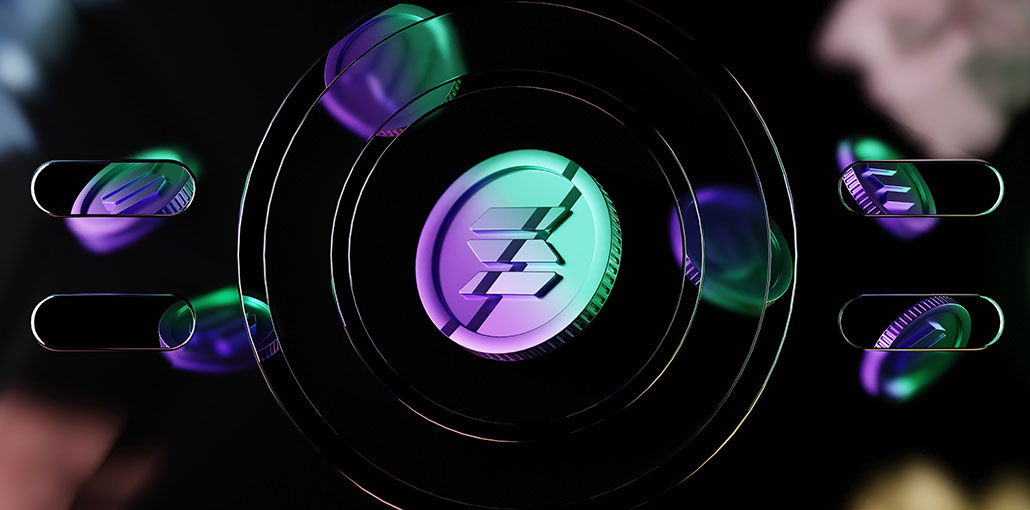For more than a decade, the Internet of Things (IoT) has been a growing and expanding industry. It was popularized in the early 2010s and technological advancements have made it possible to use it in nearly every sector of human endeavor.
To provide the best services, this ecosystem of smart devices must be continuously connected to the internet. Data management and security are still challenges in IoT.
This article will examine how blockchain technology can help improve the IoT ecosystem. Its programmable and immutable ledger is what we’ll be looking at. We’ll try to analyze the benefits that cryptocurrencies can bring to this rapidly growing industry, and give a little perspective on blockchain in IoT for the near future.
Also read: A Future of the Internet of Things (IoT)
How Blockchain can be useful for IoT devices
Before we get into the benefits of blockchain for IoT let’s first look at both technologies and see how they can be combined.
IoT is an interconnected network of devices that can be controlled remotely to perform a variety of tasks. IoT can also include smart domestic devices. They can control certain functions in your homes such as lighting, heating, security, and more.
The sensors in these devices allow them to continuously connect to the internet, and to gather real-world information thanks to their various sensors. You can also control these devices from your smartphone, and have them execute specific tasks.
These devices are used in many industries, including healthcare, logistics, and satellite surveillance. They also protect the environment and can be used to manufacture.
Blockchain is an immutable ledger that records all transactions on its network. The ledger can be copied to hundreds of computers. Any modifications must be approved by all participants. It is also an open, permissionless network that anyone can join regardless of their geographic location.
You can see that IoT devices must store all data they collect anywhere, locally or in the cloud. This data is vulnerable because it is centralized and easily compromised by hackers. Blockchain is the perfect addition to secure the data collected by IoT devices while making it accessible. IoT is inherently safer because it doesn’t have a single point of failure that can be exploited by malicious actors.
This is just the beginning. We will explore the potential benefits of using blockchain to support IoT.
Advantages of Distributed Ledger Technology
Blockchain could greatly improve the IoT ecosystem because of its immutable ledger, programmability, and smart contracts. Let’s delve in.
Privacy Improvement
Although blockchain transactions are transparent, they can also be viewed as pseudonymous. The blockchain addresses are not linked to any personal information. The grid does not allow IoT devices to connect through blockchain.
Blockchain functions without the need for intermediaries. Smart contracts allow IoT devices to communicate directly with one another. This increases the privacy of the ecosystem by ensuring that the data they exchange cannot be sold or modified.
Decentralized Network for Data Storage
The blockchain is based on a network that stores its decentralized ledger on thousands of computers. Participants in the network can instantly verify the validity of the data and compare it with their own copy of the ledger, even if the data is compromised. The malicious data will be deleted if there is a security breach.
This decentralization of data storage has another advantage. IoT devices don’t have to rely upon inefficient and expensive local storage solutions.
The direct transfer of data
Blockchains use peer-to-peer technology to transfer data. The exchange of information can be done without the need for intermediaries and is much more efficient than if there were. The IoT devices don’t have to transmit large amounts of data and this reduces the burden on them. This can also help cut down transaction times.
Secure Authentication Process
Blockchain technology uses asymmetric cryptography to access public addresses and private keys. This 64-digit code is almost impossible to hack and allows you to access the associated public address. This allows users to access the IoT ecosystem as well as pay for cryptocurrency in an easy and secure way.
Minimize Costs
Finally, users can reduce costs by connecting IoT and blockchain. Once set up correctly, smart contracts can automate devices. This is extremely useful in supply chains, where automation reduces errors and thus costs.
Also read: How is Blockchain Technology Disrupting Leading Industries?
Challenges of Blockchain Adoption
Despite all this, there are still challenges to blockchain adoption in IoT. Here are the top ones being addressed by industry leaders:
- Transaction throughput: Internet of Things devices streams data continuously. This can pose a problem for blockchains. These networks can only support a limited number of transaction slots. This could slow down the speed with which devices can communicate.
- It is expensive and time-consuming to migrate existing IoT ecosystems onto the blockchain. Before such migration is undertaken, it must be justified by the potential benefits.
- Regulation: The legality of blockchain applied to IoT remains a mystery. Privacy issues could arise due to the transparency of data. However, maintaining privacy can lead to increased costs for data management.
Some of these issues may disappear as blockchain technology improves.
Perspective on IoT Collaboration and Blockchain
Blockchain integration in IoT is still an area that needs to be explored. Due to the nature of both technologies, adoption will face many obstacles. Many blockchain companies are working to solve the above challenges. Every day, new projects have launched that offer faster, more efficient networks and higher transaction throughput.
The benefits of blockchain will eventually be fully incorporated into IoT. This would eventually transform the technological landscape, as it is now, for the better.










Leave a comment